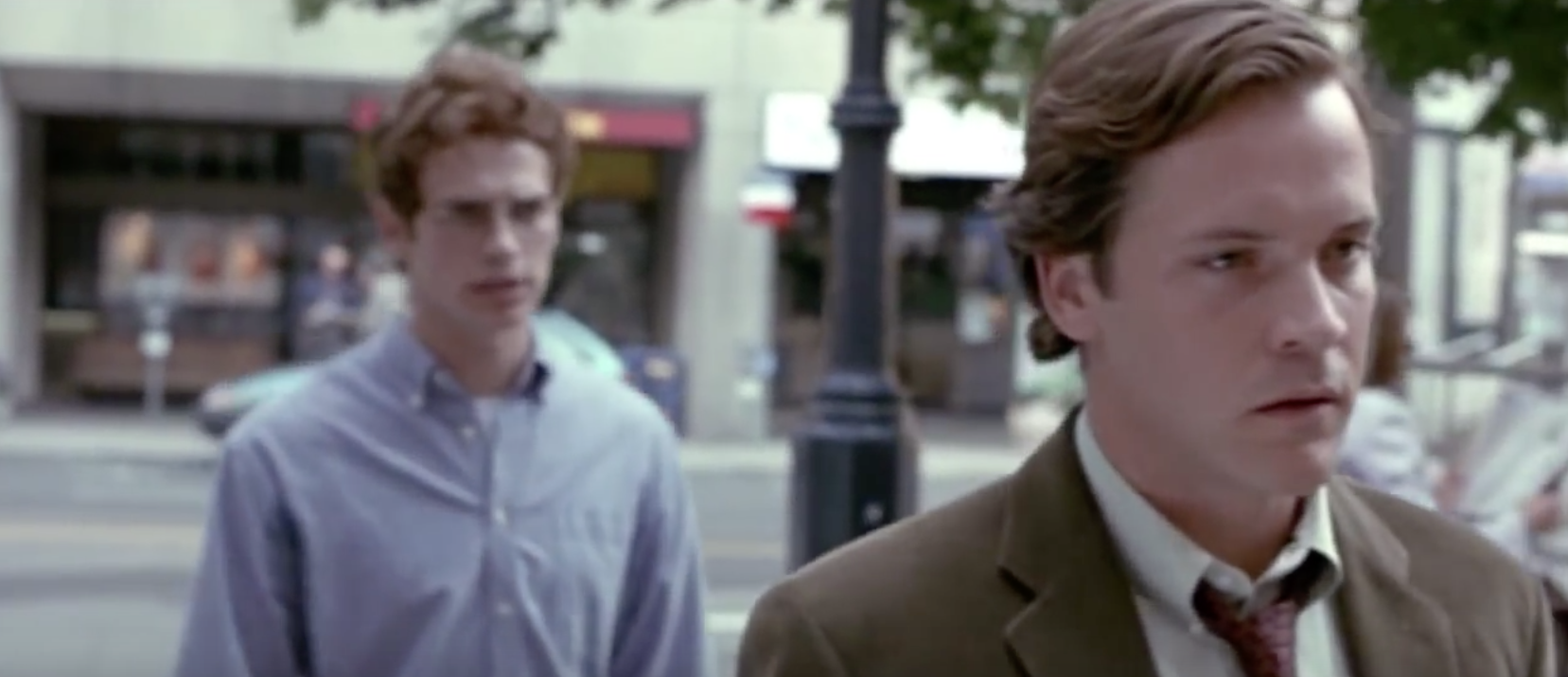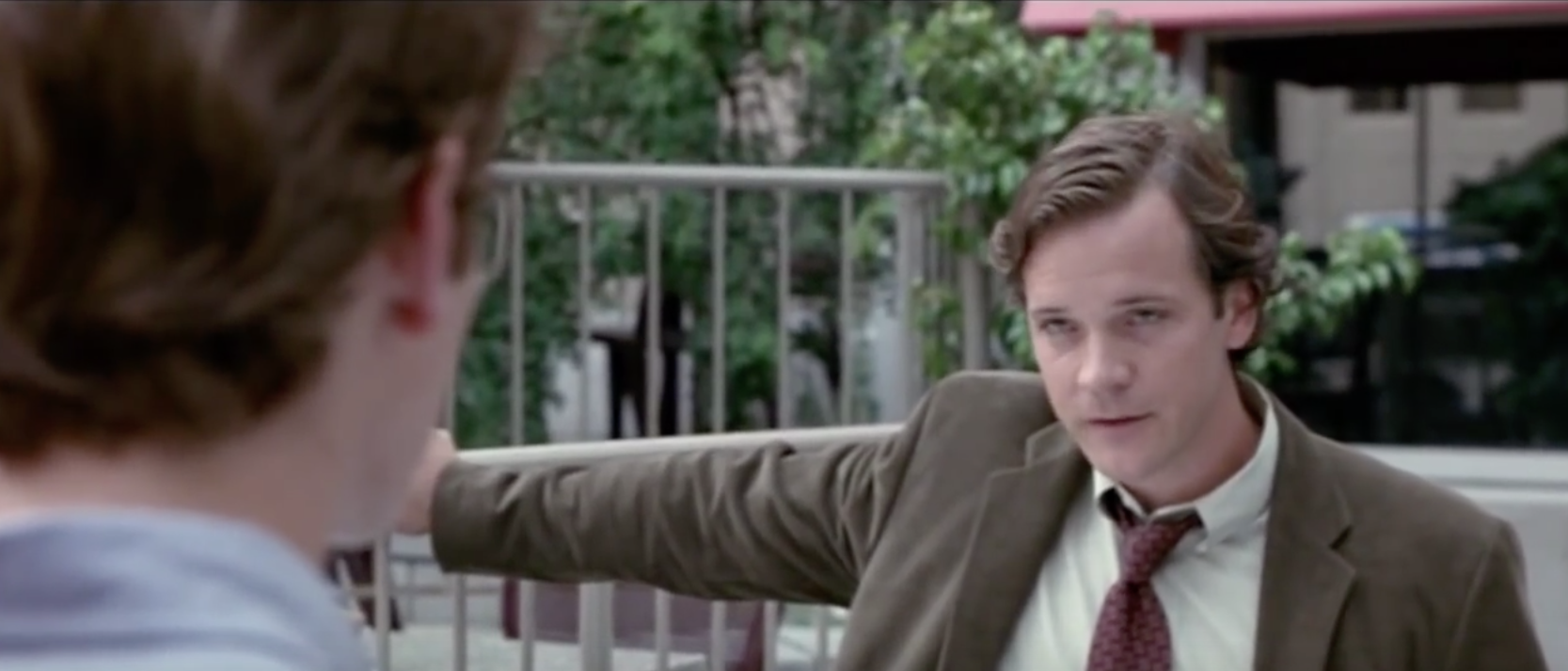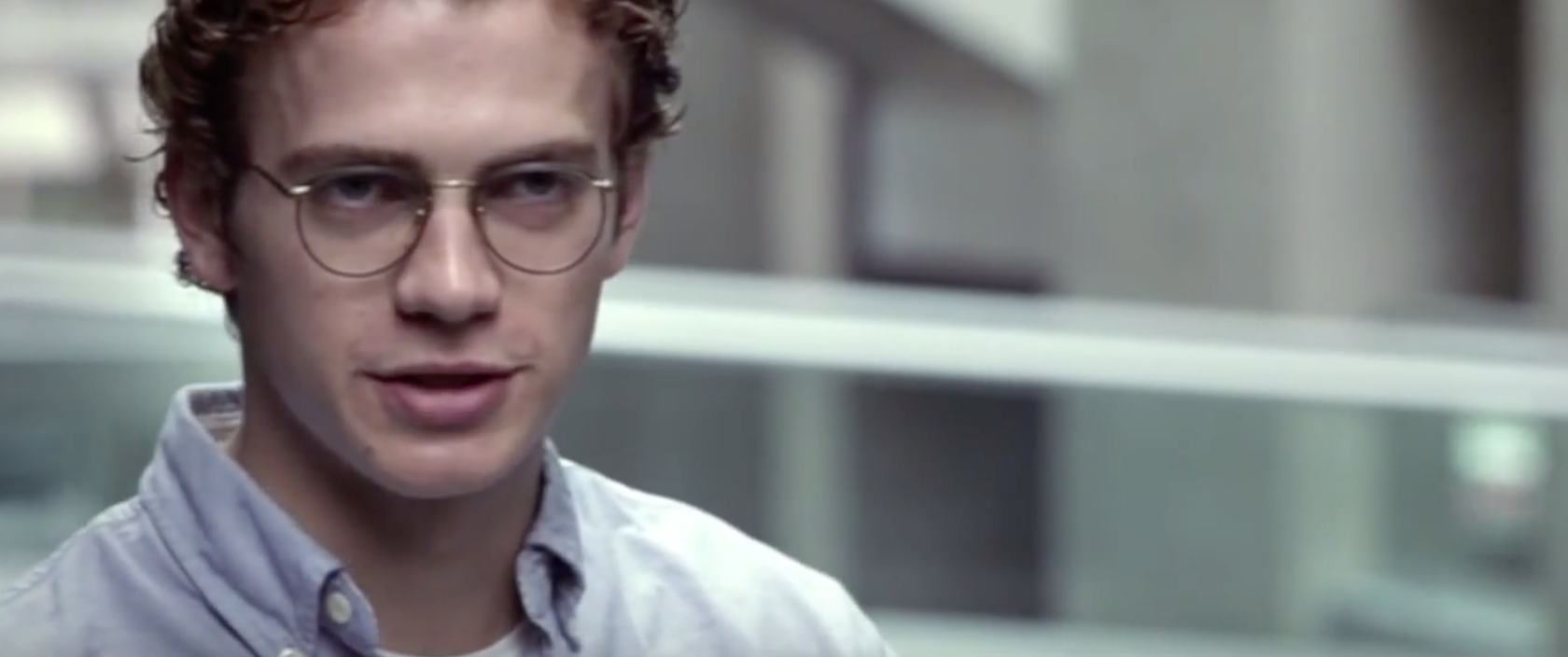
Scene: Fact-Finding Trip
The great real life journalism movies tend to focus on stories of monumental impact. Films like Spotlight or The Insider or All the President's Men are about reporters tangling with the most powerful institutions in America and uncovering scandals that affect the lives of millions.
And yet, for all their importance, I find myself thinking about those films less frequently than I think about Billy Ray’s Shattered Glass, which details a comparatively minor subject. Why is this story the one that haunts my thoughts? I was not one of Stephen Glass’s readers. Had it not been for the film I might never had heard of the wunderkind journalist who turned out to be a rampant fabulist, publishing at least twenty-seven whole or partly fabricated stories as fact during his time at The New Republic magazine...

No doubt a big part of the reason for the film's stickiness is its close-up look at the pathology at play. Instead of battling some abstract foe entrenched in distant halls of power, the heroes of Ray’s film are in an unwitting struggle with the sociopath one office over. Nowhere is this examination more excruciating than the scene where Glass’s editor Chuck Lane takes him out on a fact-finding trip in an attempt to patch up some the holes in a story of Glass’s that has started springing leaks.
Prior to this scene, Shattered Glass has taken its time watching Glass's rising star as he’s publishing killer story after killer story, endearing himself to colleagues with his self-effacing modesty, racking up victories because, as a former fact-checker himself, he knew how to game the system. Now, when one of his fantasies is challenged, we see how he transitions from offense to defense, and it’s a fascinating study in manipulation. In a DVD commentary track Lane refers to Glass’s maneuver as “retreating to a defensible position”. Every time he’s about to be truly busted, he cops to the offense, makes up a new story, and preemptively chastises himself, saying he understands why you’re mad at him. The last part is crucial. Throughout the film “Are you mad at me?” is Glass’s refrain. More than engaging people's reflexive pity it reframes his offenses as a matter of emotions not principle, a situation from which he can wriggle free easier.
It is extremely satisfying to watch this weasel get methodically cornered by Peter Sarsgaard’s Chuck Lane into admitting that his raucous piece “Hack Heaven” about middle-school-aged hacker terrorizing corporations is brazenly exaggerated bullshit. But this victory is short-lived when one realizes the disturbing truth that Lane won the skirmish but is losing the war because he is still buying into the big lie which is the persona of Glass himself. It will be a few more scenes before Lane realizes how many layers deep the deception goes, and that the tearful Glass in front of him, distraught with regret, is in fact a misdirect from the darker truth of Glass the soulless climber who manufactured the story whole cloth and has done so many times before.
In the years since Shattered Glass’s 2003 release I’ve reversed my opinion on Hayden Christensen’s performance in the title role. At first blush I thought he was overplaying Glass’s shiftiness, making it so obvious that no one could plausibly be taken in. Now I respect Christensen’s acting choices. Glass’s ingratiating personality was just another fabrication, and even casual interactions pass through several layers of calculation so he should feel a bit off all the time. We can spot the glimmer of satisfaction as his performance is having the desired effect, but who knew to watch for it then?

And of course it is glaringly obvious in hindsight, because these things always are. How often do you check to see if your friends and coworkers are fake to the core? How often do you pause to consider how terrifyingly fragile the institutions that prop up our society really are? I mean, who has the time? Christensen and Ray turn Glass into a version of Hitchcock’s famous bomb under the table, the danger we in the audience know about, but to which the characters on screen are oblivious and we shout at the screen to “Look out!” as they are taken in by another of Glass’s fictions.